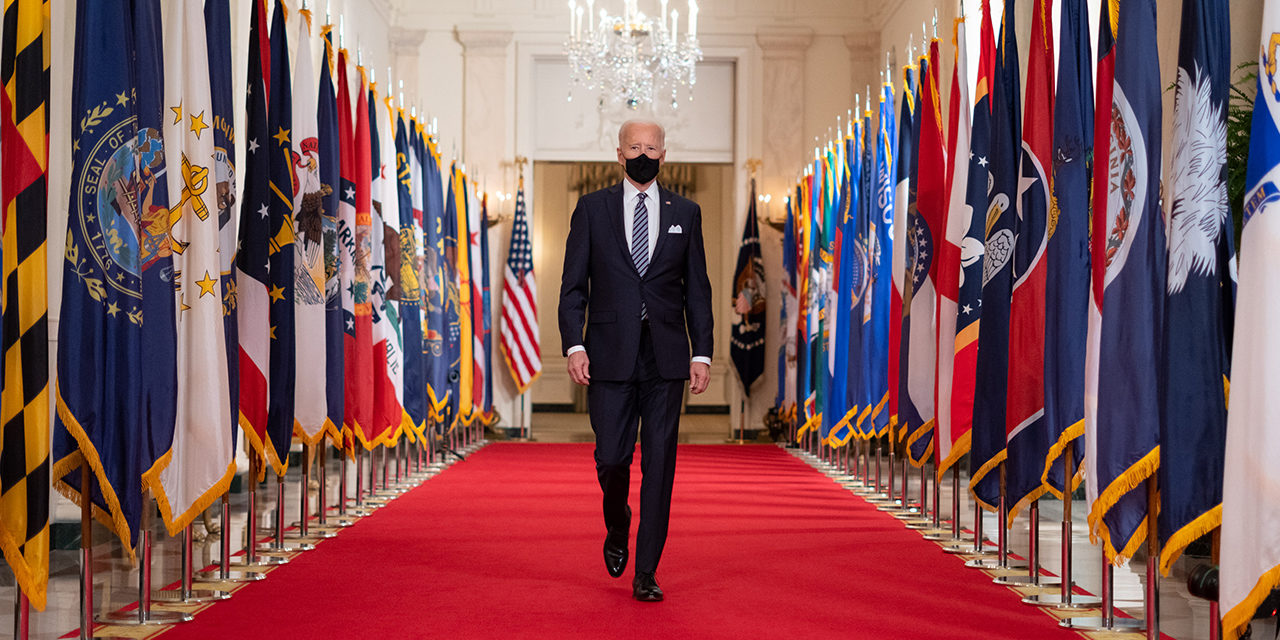In a speech last week, President Joe Biden laid out his vision for the country, which includes a $1.8 trillion price tag. He promises that his plan will be a “blue-collar blueprint” for the country, but critics are calling it “extreme, full of false statements, and divisive.”
But the question is, will it work?
History tells us that despite billions or trillions going to social welfare programs, it doesn’t bring prosperity to the country—but instead erodes the fabric of society by taking the focus away from family, faith and freedom and replacing it with reliance on government handouts and indoctrination.
Take for example, the Great Depression and the New Deal.
Oftentimes, progressives and liberals evoke the supposed legacy of the New Deal to argue for certain expansive projects. Alexandria Ocasio-Cortez’s Green New Deal comes to mind. But was the New Deal successful in bringing the country out of its devastating and years long economic downfall?
No.
Despite the numerous infrastructure projects developed and the promise to pull millions out of poverty, it failed. According to the Cato Institute, “These (programs) didn’t increase the number of jobs in the economy, because the money spent on New Deal projects came from taxpayers who consequently had less money to spend on food, coats, cars, books, and other things that would have stimulated the economy. This is a classic case of the seen versus the unseen—we can see the jobs created by New Deal spending, but we cannot see the jobs destroyed by New Deal taxing.
“For defenders of the New Deal, perhaps the most embarrassing revelation about New Deal spending programs is they channeled money AWAY from the South, the poorest region in the United States. The largest share of New Deal spending and loan programs went to political ‘swing’ states in the West and East — where incomes were at least 60% higher than in the South. As an incumbent, Franklin Delano Roosevelt didn’t see any point giving much money to the South where voters were already overwhelmingly on his side.”
In the end, it was really the Second World War that brought the nation out of its economic depression and made it one of the most economically powerful nations on earth, not the New Deal.
So, the question becomes, will this economic plan proposed by the Biden administration really help those in need, or will it once again be used to score political points with voters at the expense of those impoverished?
Then there is the Great Society, a project of Lyndon Johnson designed to abolish inequality, increase education opportunities and improve the environment. But did it actually succeed?
Again, the answer is no.
It’s clear just from turning on a television set over the last year that many in the country still believe that there is systemic racial injustice in this country, whether it is true or false.
When it comes to the family, Bob Woodson, of the Woodson Center and the 1776 Unites project, shared with The Daily Citizen in an interview earlier this year that the black community had more marriages and fewer out of wedlock births than other segments of the population before the Great Society was put into action.
“The out of wedlock births that is rampant today in the black community and crime is a phenomenon of the last 50 years,” Woodson said. “We demonstrated through our research and examples that during the 1930s to 1940s, when the country was in the Great Depression, the black community had the highest marriage rate of any group in society. The black community was able to thrive due to its Christian faith and the importance of the nuclear family.”
This stability persisted into the 1950s, until Johnson’s Great Society was introduced and likely played an instrumental role in dismantling that family unit by pushing households to look to the government and destabilizing the family.
Education reform was also a big component of the Great Society, but it also clearly failed. Last year, students had the “lowest-performing high school seniors in math and reading, and more than 6 in 10 seniors were not academically prepared for college.”
According to the book, Great Society: A New History, “just as the 1960s forgot the failures of the 1930s, we today forget the failures of the 1960s.”
It’s incredibly true.
The policy introduced by the new administration this week is just another plan to expand the government under the auspices of creating a better society. It promises a lot, but will it deliver? History says no.
Photo from The White House






